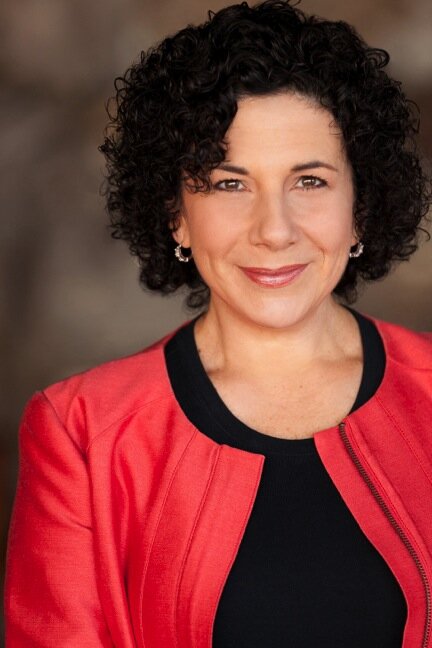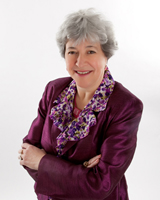Laura Berman Fortgang
Laura Berman Fortgang, Now What?® CoachingThe “Ask the Expert” interview series features dynamic, inspiring leaders. This year, we’ve spoken with Judith Kolberg about change and Sue West about fresh starts. As we shift our focus this month, I’m thrilled to bring you a pioneer in the personal coaching field, Laura Berman Fortgang, to share her thoughts about next steps.
In 2006, I had the pleasure of hearing Laura present “Have A Business Breakthrough!” at the NAPO conference in Boston. She captivated the group with her energy and insights. My sincere gratitude and thanks goes to Laura for taking the time to join us. Laura’s interview moved me to tears because she spoke to the best of who we can become. Before we begin, here’s more about her.
Laura Berman Fortgang is internationally recognized as a pioneer in the personal coaching field and as the author of five books including Amazon bestseller, Now What? 90 Days to a New Life Direction and The Little Book On Meaning, which was a finalist for a Books for a Better Life Award alongside the Dalai Lama. Laura is a trusted media resource having appeared on the Oprah Winfrey Show and all the national morning shows. She is also a sought-after professional speaker. Laura is founder of Now What?® Coaching and was a founding member and early board member of the International Coach Federation. You can connect with Laura on Facebook, Twitter, website, or blog.
Linda Samuels: You’re a pioneer in the coaching industry and expert on helping others to become their best selves. How can we successfully prepare for “next”?
Laura Berman Fortgang: The best gift you can give yourself as you prepare for the ‘next’ is to reduce the stress and anxiety in your life as much as possible. Hearing your own inner promptings and recognizing opportunities that are around you are not likely to happen when you are in a state of alarm over your circumstances.
Build in time to exercise, to have some fun and to meditate or journal as ways to ease your body and mind into a state where you can be receptive to new ideas and build the courage to take action.
Linda: Sometimes our end goals seem so far away that we intimidate ourselves into inaction. What are some of your favorite strategies for moving past stuck?
Laura: Small and steady is the motto for getting unstuck. Reduce the action steps into very small, do-able pieces and re-ignite your engine for action by having small successes.
For example, take on one thing a day towards your dream or make a deal with yourself to make two phone calls a day to people who can shed light on your chosen direction or help you explore the feasibility of an idea you have.
Small starts adding up and before you know it, you’ll be past ‘stuck’.
Linda: What if “next” isn’t obvious?
Laura: It is often not obvious what is ‘next’. The key is to follow the crumbs. Even if it seems scattered and unfocused at the start, follow every lead and every whim until traction begins to occur or until your excitement in one area or another starts to build.
Observe where things start falling into place and pursue that path. It’s taking you to your ‘next’ (or some variation thereof.)
Linda: What has been your most surprising discovery about figuring out “next”?
Laura: The most surprising thing is that if you start thinking that you are crazy and everyone is telling you so because of what you are considering as a next step, you must understand that you have found ‘IT’. That idea, inkling, nudging or longing is exactly the one you need to be pursuing.
Many will run. Only the brave will stay the course and be happier for it!
Linda: What has been your biggest personal challenge around taking the next step?
Laura: For me, the biggest personal challenge has been reconciling that the past is not to be repeated but rather to be rolled into what’s coming next. In other words, I have been slow to accept when it’s been time to move on.
Linda: Is there anything you’d like to share that I haven’t asked?
Laura: I would ask: What is the most significant tool you use to help people find their next step?
Surprisingly for many, it is not their resume. To many a client’s surprise and disappointment, I don’t look at someone’s resume when we begin the process of learning about them. The reason for that is that it tells me only the chronological, logical progression of your career. It does not tell me if you are using all you have available to you. I know you are not, or you would not be calling me.
The most important tool I use is someone’s life story. I use a very specific way of extracting someone’s life history and then we analyze it together for specific clues to what would make the most satisfying future direction.
A resume is linear and logical. A life story is not. And it is there that the rich information waits for the exploration of what’s next. It’s very exciting.
Thank you, Laura for your generosity and insights about next steps. There are so many wonderful ideas here. Your thoughts about preparing the canvas or self so that you can be ready, rested, and open to next resonated with me, as did your “follow the crumbs” idea when next isn’t obvious. Perhaps more than anything, though, your last point about discovering next by exploring one’s life story rather than resume, really spoke to my core. Our stories reveal patterns, strengths, and passions.
I invite all of you to join Laura and me to continue the conversation. We’d love to hear your thoughts about next steps, getting unstuck, or your discoveries. What are you thinking about?







